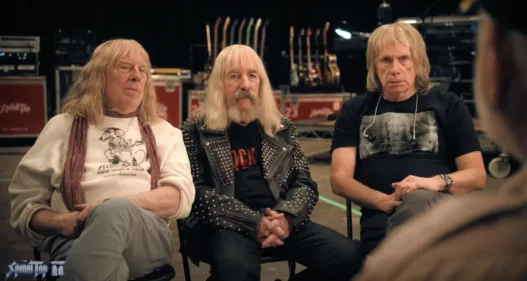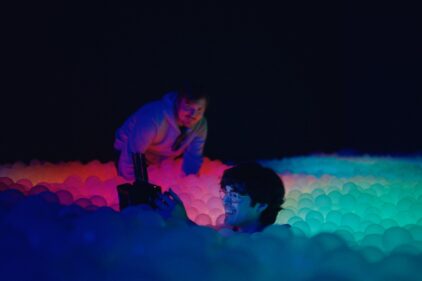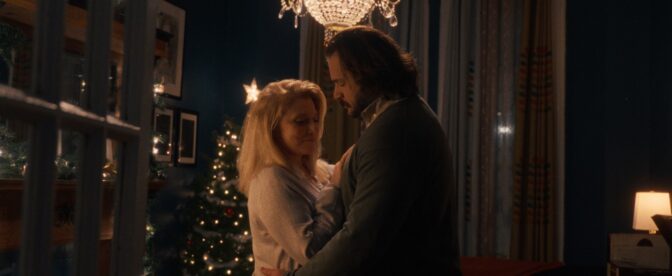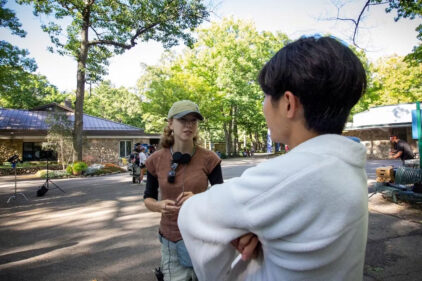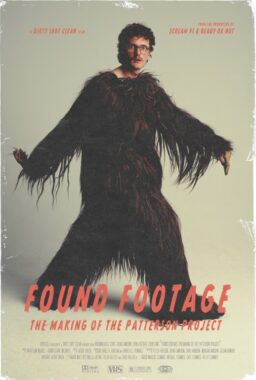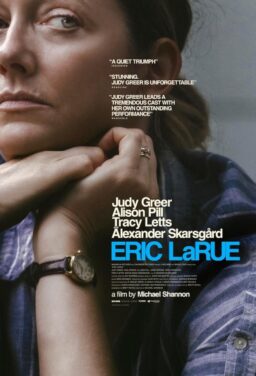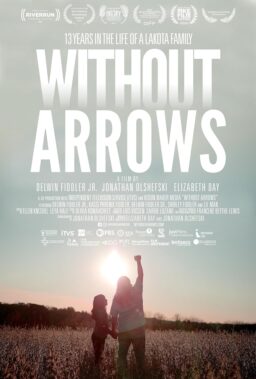All in all, it was an exciting week for “The French Connection.”
It made the top of Variety’s box office chart. Down on the New York docks, vice cops broke up an attempt to smuggle in millions of dollars of heroin from
France – and the smack was hidden in a car, just like in the movie. Then, toward the end of the week, detective Eddie Egan (whose real-life adventure is told in “The French Connection”) was busted on real-life charges of withholding small quantities of drugs in 22 separate cases.
Only one thing was lacking to make it a perfect week: President Nixon didn’t see the movie three times and invade France.
Gene Hackman, who portrays Egan in the movie as Jimmy Doyle, thinks Eddie got a lousy deal.
“What kind of a thing is that, busting the guy ten days before he’s up for retirement?” Hackman was
asking here the other day. “I know these guys and that retirement pay means a lot to them, it’s no laughing matter. Besides, I’m positively sure, myself, that it was a bum rap. But I can’t tell you why for
publication.”
“Why not?” I asked. “It might do Egan some good.”
“Yeah,” said Hackman, after a moment’s thought. “Why the hell not? The key words in the indictment are
‘small quantities.’ They’re talking about nickel bags. Egan isn’t that kind of a guy. I just know he’s not. For one thing, guys like that have too many
opportunities for big scores, if that’s what they’re after. They’d never take a chance on a five buck bag of heroin.
“I’ll tell you what I think happened. I went along on some raids with these guys, Egan and his partner. For all anyone knew, I was a cop. I saw how they operated. They weren’t after the street users, the little guys. They want the suppliers. Their dream is to bust an entire shipment while it’s coming into the country – which is what the movie is about.
“Anyway, they’d be in hostile territory. A street corner saloon or someplace. And they’d bust a guy and shove the stuff into their pockets, too busy to think about it. They’re worried about knives and guns,
they’re not worried about a glassine envelope of
heroin. That’s not gonna stab them in the back. So they’d shove the stuff in their pockets while they had the guy up against the wall, and then if they decided not to bust him, they couldn’t take the stuff and give it back.
“I remember once somebody shoved some stuff at me and said, ‘Here, hold this.’ I got back to my hotel and found the stuff still in my coat pocket, and I just about died. These guys, they’re after the main thing. Sometimes they’re sloppy about details. So they forget a bag. They’re doing a job.”
Hackman paused while an order of Steak Diane closed in on his left. This was in the Pump Room, where he was taking his father to dinner. The next day the two of them were going on down to Danville, where Gene was born, for a family reunion. There was even talk that another Danville native, Dick Van Dyke, would be
there. “He and his wife stood up for Gene’s brother when he got married,” Gene’s father said.
There is a lot of talk that Hackman will get an Academy Award nomination as best actor for “The French Connection.” He has already been nominated twice as best supporting actor: In 1968 for “Bonnie and Clyde,” where he played Clyde’s brother, and again this year for his performance as the tormented son in “I Never Sang for My Father.”
How does he feel about the awards?
“Well, if anything keeps ‘The French Connection’ back from a series of nominations, there isn’t any
justice,” he said. “I’m not talking just about myself. I’d like to see Billy Friedkin get some recognition as the year’s best director. Nobody else could have made this picture. I learned a lot about movies just
knowing what Billy left out in the editing stage. He left out all kinds of character development scenes, in order to get on with the action. Yet there are enough scenes left to make the characters work. Another
director might have left everything in and ruined the pace of the picture.”
Hackman has played a range of very different roles since he first gained wide attention in “Bonnie and Clyde.” Apart from his many performances on and off Broadway, he has been a driven, Vince Lombardi-type ski coach in “The Downhill Racers,” a hardnosed con in “The Riot,” and a narcotics detective, again, in
“Cisco Pike,” which hasn’t yet been released.
It’s interesting to compare the differences in his two portrayals of detectives. In “The French
Connection,” Doyle is hard as nails, sadistic, racist, driven by a tremendous ego to win against all odds. The cop in “Cisco Pike,” on the other hand, tries to project a facade of toughness, but he’s weak and
scared to death inside. Since the exterior of both characters are similar, Hackman’s ability to make them so different is a measure of his gift for sinking into characters.
Although a lot of moviegoers remember his performance in “I Never Sang for My Father” with respect and
affection, it isn’t one of Hackman’s favorites. “I was uncomfortable doing the part. In terms of drama, the movie was unrelenting. Every scene was a culmination scene, and we were always taking psychological last stands. Usually an actor can find some way to play against a character, to give him some additional
dimension. But it was super difficult to find an area in this guy that was different. He was always whining. I kept working at it to find ways to release that, but I never could.”
The character of Doyle in “The French Connection” was especially hard.
“I’m not that kind of guy. He was a physical man. No second thoughts. No introspection. We had to go back and re-shoot the first two days of scenes because I hadn’t gotten into the character enough. I wasn’t
physical enough.”
Was the character in “I Never Sang for My Father” closer to what comes naturally?
“No, I wouldn’t say so,” he said. “It wasn’t autobiographical. I had to start from scratch there, too. I mean it’s always hard to really talk with your parents, but I wouldn’t say the movie really reflected my own experience.”
He paused. “Dad,” he said, “did you ever see that picture?”
“Which one?” asked his father.
“‘I Never Sang for My Father.'”
“No, I didn’t see that one.”
“I thought you had.”
“No,” his father said, “I didn’t very much want to see it. I heard from some other people what it was about, and I didn’t think of myself as that kind of a father, so I didn’t go.”
“See?” Hackman said.

